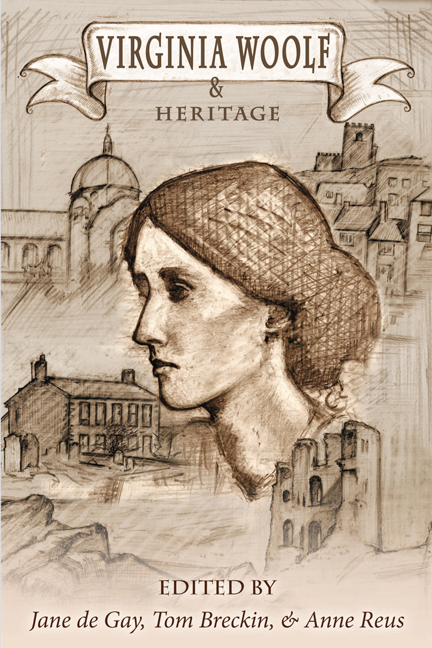Book contents
- Frontmatter
- Contents
- Introduction
- List of Abbreviations
- HERITAGE: A DEBATE
- HERITAGE, EDUCATION, AND MENTORING
- HERITAGE SPACES
- LITERARY AND CULTURAL HERITAGES
- Virginia Woolf in Greece: “Curious contrasts!”: Hellenism and Englishness
- Whose Idea of Tragedy? Mrs Dalloway and the Ancient Greek Tradition
- Silence, Darkness, and Dirt: Mysticism and Materiality in The Years and Between the Acts
- Virginia Woolf Reads the Romantics
- A Critical Heritage: Virginia Woolf, Leslie Stephen, and Walter Scott
- “Where Childhood's dreams are twined”: Virginia Woolf and the Literary Heritage of Lewis Carroll
- QUEER PASTS
- MODERNISM AND HERITAGE
- WRITING LIVES AND HISTORIES
- WOOLF'S LEGACIES
- FINALE
- Notes on Contributors
Virginia Woolf Reads the Romantics
from LITERARY AND CULTURAL HERITAGES
- Frontmatter
- Contents
- Introduction
- List of Abbreviations
- HERITAGE: A DEBATE
- HERITAGE, EDUCATION, AND MENTORING
- HERITAGE SPACES
- LITERARY AND CULTURAL HERITAGES
- Virginia Woolf in Greece: “Curious contrasts!”: Hellenism and Englishness
- Whose Idea of Tragedy? Mrs Dalloway and the Ancient Greek Tradition
- Silence, Darkness, and Dirt: Mysticism and Materiality in The Years and Between the Acts
- Virginia Woolf Reads the Romantics
- A Critical Heritage: Virginia Woolf, Leslie Stephen, and Walter Scott
- “Where Childhood's dreams are twined”: Virginia Woolf and the Literary Heritage of Lewis Carroll
- QUEER PASTS
- MODERNISM AND HERITAGE
- WRITING LIVES AND HISTORIES
- WOOLF'S LEGACIES
- FINALE
- Notes on Contributors
Summary
For oft, when on my couch I lie
In vacant or in pensive mood,
They flash upon that inward eye
Which is the bliss of solitude;
And then my heart with pleasure fills,
And dances with the daffodils.
—William WordsworthAfter her exhaustive search for women's place in the history of fiction, in the last chapter of A Room of One's Own, Virginia Woolf turns her eye from the books to the window, from the internal to the external world. “It was tempting, after all this reading, to look out of the window and see what London was doing on the morning of the 26th of October 1928,” she says (AROO 124). The window is a constant trope in Woolf 's oeuvre, a threshold that delimits our internal negotiations and the linguistic projections of our subjective view onto the world—our constant folding and unfolding, as Gilles Deleuze would theorise in his reading of Michel Foucault (97).
Her turning to the window at this point reveals her need to fold back in, from the external world, an image that would help her transcend the very room of her own: the possibility of a third way, a confusion between the places men and women had had in the history of fiction. All she sees, however, is a flux of isolated bodies rushing past one another in the streets of London; men and women who were completely alien to the pain of her intellectual exercise, caught up in the webs of non-being, to remember Woolf 's final philosophy.
Suddenly, the flux stops: “nobody passed” (AROO 125). It is at this moment that Woolf turns her eye to another threshold: the divide between human and nonhuman. In the deserted street, in this suspended reality outside of the time of the passersby, only a leaf seemed to bear movement. “Like a signal falling” (AROO 125), this leaf detached itself from a lonely plane tree reminding Woolf of a different flux: the leaves that make their way with the wind and glide along the streets of hectic men and women in the eternal unrest of the natural world, a movement that escapes us in the confines of the city. It is here, in the movement of this nobody who passes under her window, that androgyny appears.
- Type
- Chapter
- Information
- Virginia Woolf and Heritage , pp. 109 - 114Publisher: Liverpool University PressPrint publication year: 2017



